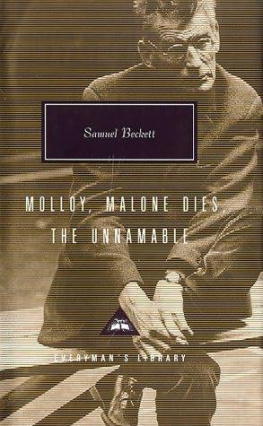Samuel Beckett - The Unnamable
Here you can read online Samuel Beckett - The Unnamable full text of the book (entire story) in english for free. Download pdf and epub, get meaning, cover and reviews about this ebook. year: 2009, publisher: Faber and Faber, genre: Art. Description of the work, (preface) as well as reviews are available. Best literature library LitArk.com created for fans of good reading and offers a wide selection of genres:
Romance novel
Science fiction
Adventure
Detective
Science
History
Home and family
Prose
Art
Politics
Computer
Non-fiction
Religion
Business
Children
Humor
Choose a favorite category and find really read worthwhile books. Enjoy immersion in the world of imagination, feel the emotions of the characters or learn something new for yourself, make an fascinating discovery.
- Book:The Unnamable
- Author:
- Publisher:Faber and Faber
- Genre:
- Year:2009
- Rating:5 / 5
- Favourites:Add to favourites
- Your mark:
- 100
- 1
- 2
- 3
- 4
- 5
The Unnamable: summary, description and annotation
We offer to read an annotation, description, summary or preface (depends on what the author of the book "The Unnamable" wrote himself). If you haven't found the necessary information about the book — write in the comments, we will try to find it.
The Unnamable — read online for free the complete book (whole text) full work
Below is the text of the book, divided by pages. System saving the place of the last page read, allows you to conveniently read the book "The Unnamable" online for free, without having to search again every time where you left off. Put a bookmark, and you can go to the page where you finished reading at any time.
Font size:
Interval:
Bookmark:

After a war spent in hiding in the south of France, and a period spent working at a Red Cross hospital in Saint-L, Samuel Beckett returned to his apartment in Paris at the beginning of 1946 to try, like so many others, to resume his life. He had been writing for fifteen years and had to his name a short critical essay on Proust (1931), a book of short stories (More Pricks than Kicks, 1934), a volume of poems (Echos Bones, 1935) and a novel (Murphy, 1938), of whose fortunes he had had no word during the war, and which he discovered had been allowed to go out of print in 1943. He also had the manuscript of a novel written in Roussillon, the wildly weird Watt, which began a long career of rejections by baffled publishers in 1946. If these were not entirely inspiring prospects, there seemed no reason either why Beckett should not be able to resume, on the same terms as before, his place as a minor participant in the literary and artistic circles that were beginning to come back together in Paris, eking out the allowance he received from his mother with work as a jobbing reviewer and translator.
Two things occurred to change all this. The first was a realisation that suddenly came to Beckett, probably during a trip back to Ireland to visit his family in May 1946, that the way for him to write might not involve trying to emulate the constellatory omnicompetence of James Joyce, but rather exploring the opposite condition, of impotence, ignorance and weakness. The second was the practical and philosophical enactment of this renunciation as, returning to Paris, Beckett began writing, not in the English of which he had made himself such a perplexing and exhibitionist virtuoso, but in the French of his adopted country. This was not quite such an abrupt or overnight decision as is sometimes thought, for Beckett had in fact begun writing in French before the war, producing a short critical essay (Les deux besoins) and a sequence of poems. More significantly, perhaps, he had also completed a translation of his novel Murphy into French, partly in collaboration with his friend Alfred Pron, in 1940. Beckett would speak often and consistently in later years of the salutary effects of writing in a language which was less sumptuously stuffed with stylishness as English was, for him at least. But it is likely that significant encouragement for his beginning to write in French was also provided by the fact that, at the end of 1945, he had signed a contract with the publisher Bordas for the French version of Murphy, along with all future work both in French and in English. In the event, Bordas would show no interest in any of the work Beckett was to offer them over the next six years, leading him eventually, and after some painful wrangling, to extract himself from his contract with them in 1951; but the signing of the contract must initially have provided a considerable boost to his sense of the possibility of being able to establish himself as a writer in French.
Whatever the impetus may have been, there then followed a remarkable torrent of writing in French, beginning with four long stories or nouvelles, and another novel in French, Mercier et Camier, both of which were completed in 1946, and a play, Eleuthria, written in a single month at the beginning of 1947. Then followed the sequence of three novels of which The Unnamable is the culmination, all substantially completed over the next three years, along with the play that would make Beckett suddenly famous, En attendant Godot.
Molloy was written in seven months, between 1 May and 1 November 1947. Its sequel, Malone meurt, was begun almost straight away, on 27 November, and completed six months later, on 30 May 1948. A pause of ten months then ensued, and it seems clear that Beckett had no thought of a third novel in the sequence at this point. He wrote to Thomas MacGreevy in January 1948, referring to Molloy as the second last in a sequence of works beginning with Murphy, on the last of which (Malone meurt) he was currently at work (Pilling 2006, p. 102). It was not until 29 March 1949 that Beckett began work on LInnommable. His principal diversion during this lay-off was the writing of En attendant Godot, in a four-month streak between October 1948 and January 1949.
The third novel took longer than either of its predecessors. Beckett worked on his first draft for nine months, from March 1949 to January 1950. Pressure of other commitments, notably the translations he was preparing for the Anthology of Mexican Poetry that would eventually appear in English in 1958, kept him from completing LInnommable until he took the manuscript with him to Ireland in June 1950, where he would remain until September, typing it up. Meanwhile, his partner, Suzanne Deschevaux-Dumesnil, had been active on his behalf, trying, in the absence of any interest from Bordas, to interest the recently formed ditions de Minuit in Becketts French novels, of which there were now four in the queue: Mercier et Camier, Molloy, Malone meurt and LInnommable.
That Beckett had come to think of the last three as forming a coherent sequence is indicated by the fact that when he did eventually sign a contract with Minuit in November 1950 it was for publication as a whole of what would in time become known simply as the Trilogy. However, the novels were published separately , Molloy in February 1951 and Malone meurt later that year, in November. There then followed almost a two-year gap before LInnommable appeared in July 1953. It would sell 476 copies in the first year, a pretty decent sale and one no doubt buoyed up by Becketts new fame as the author of En attendant Godot, which had premiered in January 1953.
The huge outpouring of work written in French from 1946 to 1950 had left Beckett with the bleak aftermath of having to produce English translations, to catch up with himself. Somewhat oddly, given that Beckett had not sought much assistance in writing or revising the original texts in French, his initial idea was to give the job of turning his work into English to somebody else, and the young writer Patrick Bowles was selected for the task. But if this was the idea, it did not last long, for Beckett was soon wrestling with the text alongside Bowles, working closely on each sentence. The fact that Minuit announced that it expected Bowles to be Becketts translator for two more years suggests that Beckett initially intended to collaborate with him on translating all the novels in the Trilogy. But Beckett seems initially to have found it more efficient, and less trying, for Bowles to produce first versions of the text for him to work over, and subsequently, following the translation of Molloy, to take sole responsibility for later translations. Work on the translation of the next novel in the sequence, Malone meurt, occupied him almost continuously for much of 1955, and he expected to be able to begin work on translating LInnommable the following year.
As with its original composition, translating LInnommable gave Beckett much more trouble than the previous two novels in the sequence, tough going though they had been. He began the job in March 1956, but then abandoned it. He wrote guiltily to Thomas MacGreevy in July, telling him that he knew he should be getting on with the translation, but that it was an impossible job. All the time, new work was beginning to make demands, including of course further translating demands. These were intensified by the fact that Beckett seems to have considered at this point in his life that he might have to be responsible for the German translations of his work as well: he had already worked closely with Erich Franzen on the German translation of
Font size:
Interval:
Bookmark:
Similar books «The Unnamable»
Look at similar books to The Unnamable. We have selected literature similar in name and meaning in the hope of providing readers with more options to find new, interesting, not yet read works.
Discussion, reviews of the book The Unnamable and just readers' own opinions. Leave your comments, write what you think about the work, its meaning or the main characters. Specify what exactly you liked and what you didn't like, and why you think so.

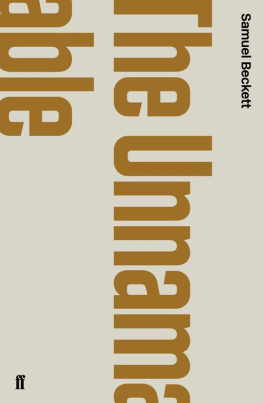
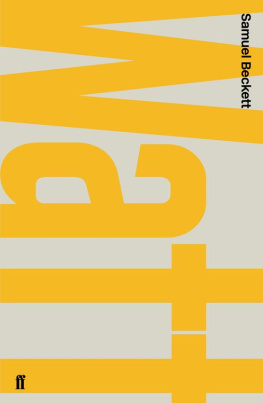
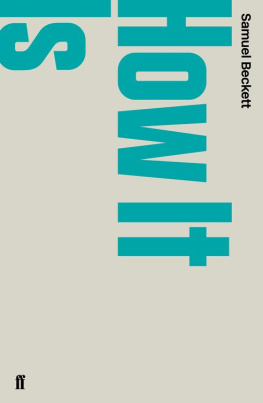
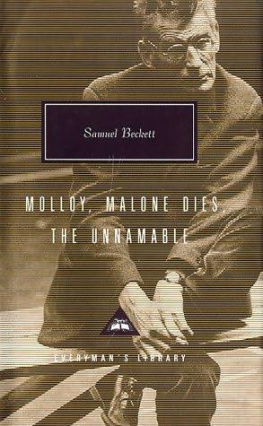
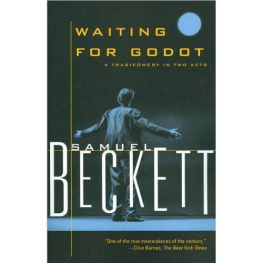
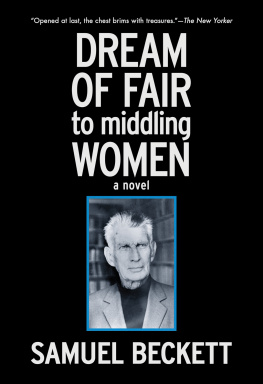


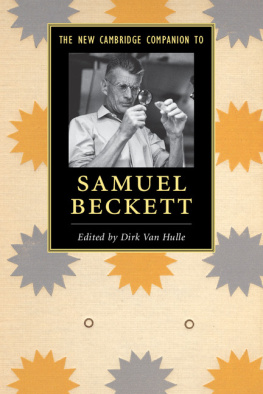


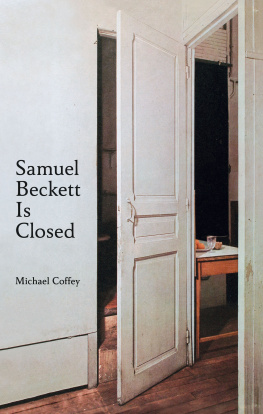
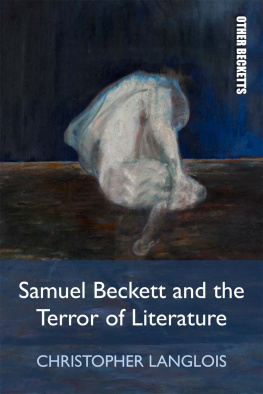

![Samuel Beckett [Samuel Beckett] - The Complete Dramatic Works](/uploads/posts/book/72751/thumbs/samuel-beckett-samuel-beckett-the-complete.jpg)
